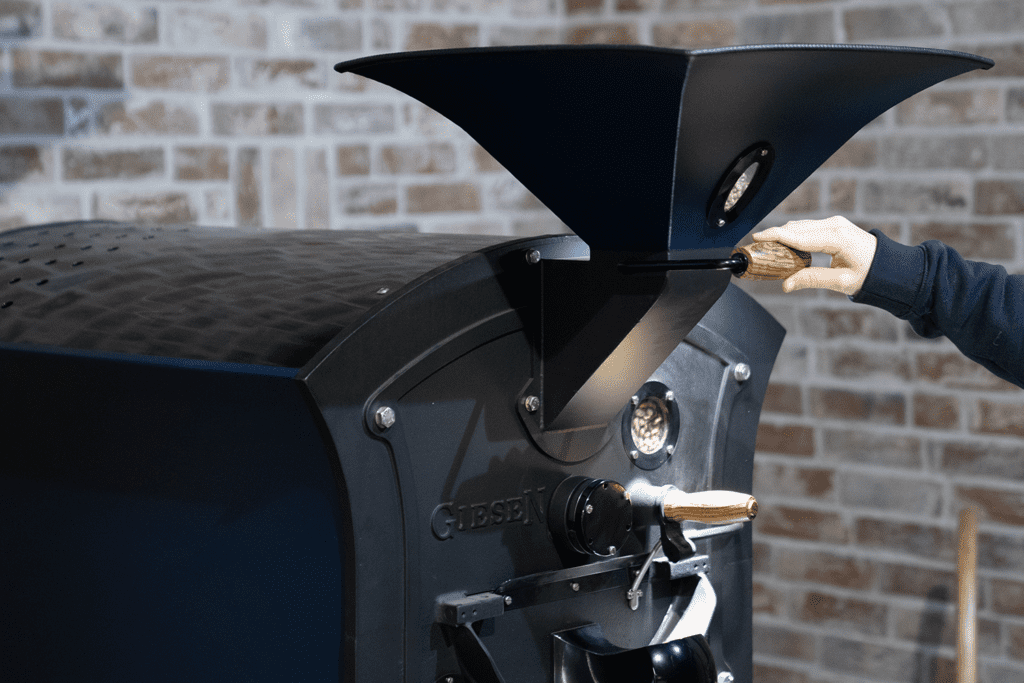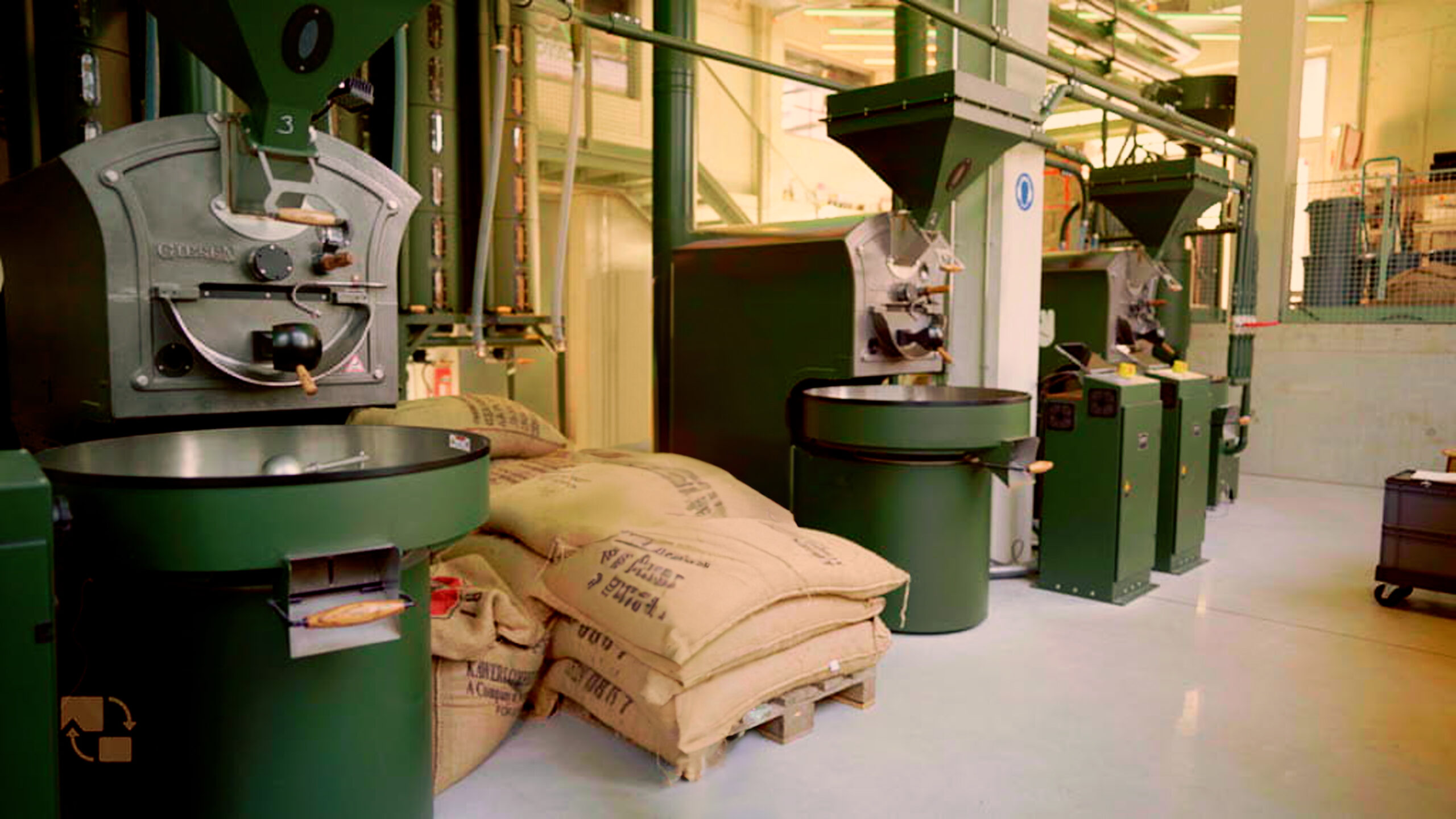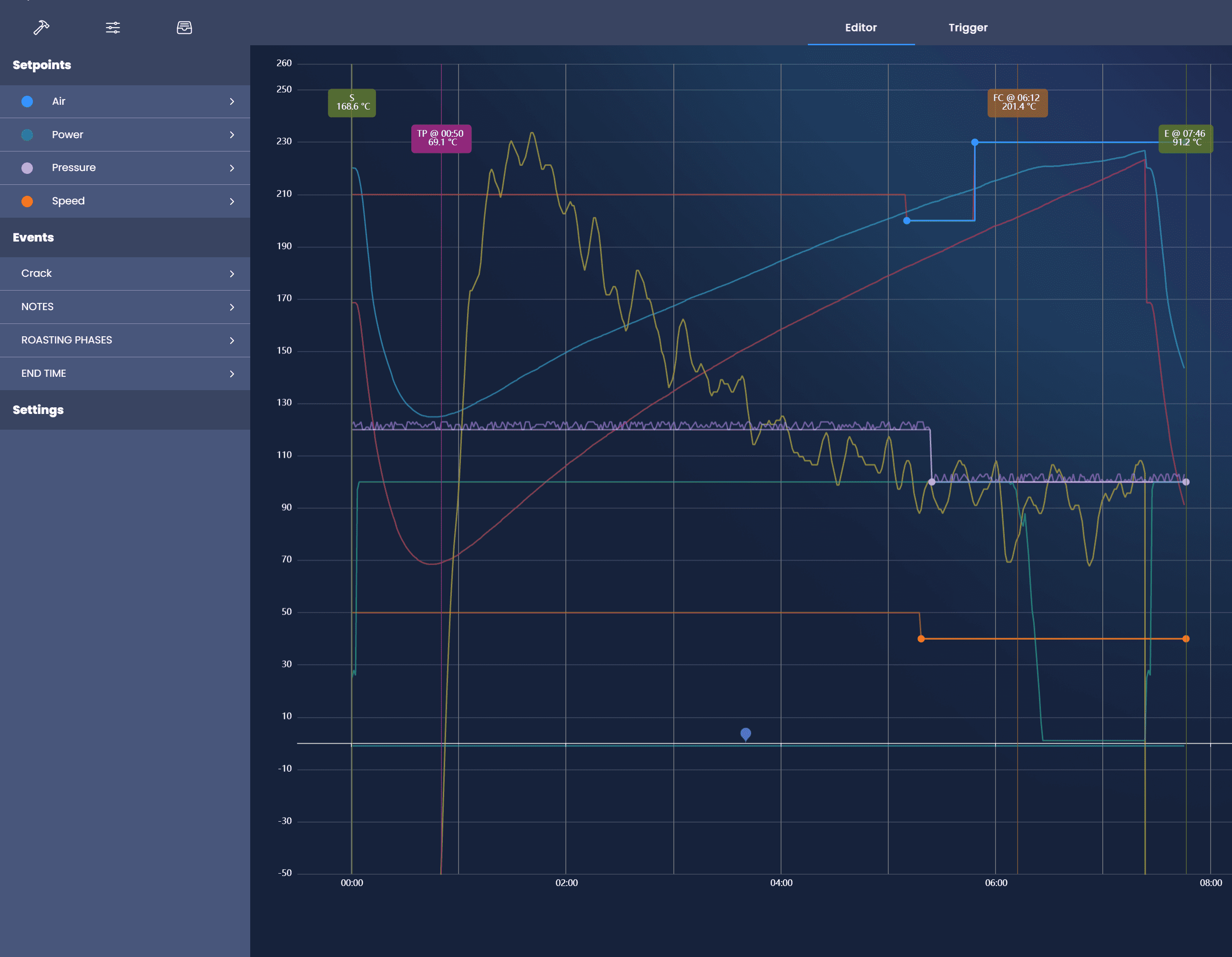Everyone drinks coffee, this is a moment of peace, an energy boost or to simply connect with someone. But who are the people roasting your coffee? You’re listening to the Giesen Roastcast, where we talk about everything that has to do with roasting and your business in the coffee industry. Cisca roasted coffee year in, year out for over half a decade. With her own coffee roastery and as an ambassador of Giesen Coffee Roasters, she wants to show you what it means roasting coffee for a living. So grab a cup of coffee, sit back and relax. This is the Giesen Roastcast.
In this episode of the Roastcast, Cisca Colijn and Sonja Björk Grant talked about being a woman in the coffee roasting industry. Some people say it’s a man’s world. But is this really true? Cisca and Sonja will tell you all about it. Sonja is a barista, roaster, and barista trainer and worked at Kaffitar in Reykjavik for 13 years. She ended up running 14 of their coffee shops and doing quality control for the roastery. Besides that, she is one of the pioneers of the championships that World Coffee Events (WCE) oversees.
You can also listen to the episode here:
Summary
Cisca: ‘Always nice, talking to a female roaster. Can you tell us a little bit about yourself?’
Sonja: ‘Absolutely. I’ve been in coffee for 27 years. I live in Iceland, and I am 52 years old. In 2008 I was working the floor in Copenhagen at the World Championship, when I saw these beautiful roasters and I was like, he there is another brand that nobody told me about. The machines came in color, and I had only one request. I wanted to have it pink. So, at that time, the brand didn’t matter, I just needed a pink roaster. That was the first time I met Giesen and got my pink machine. That was the W6, shortly after that, I also got the W1 Giesen.’
Cisca: ‘So, you never regretted taking a Giesen machine?
Sonja: ‘No, I never did! My shop was an in-store roastery. So, the roasters were in the middle of the space. Every time people were walking by the space, they saw these huge pink machines and came inside. In the night, I had a light spot on the pink machine. I didn’t label my café; it was a café you had to look for. But if you looked for the pink machine, you could find my place.
I had the business for 5 years and after that, I sold it with everything. Including the pink machines, something that was difficult for me. Then I started a new roastery. In 2016 I got another W6. I still have that machine today.’
Cisca: ‘And what color is your new machine? I must ask.’
Sonja: ‘I wanted to do something different for this machine. I didn’t want it pink because that was my former company. I can’t look back; I always look forward. In the end, I wanted it completely naked. So, that was the first raw machine Giesen made.’
Cisca: ‘How is the coffee culture in Iceland right now?’
Sonja: ‘We have like 9 roasteries that are active. Iceland is not a big community. I am one of the small ones. And we have 4 Giesen roasters and the 5th roaster is on its way.
Cisca: ‘How do you, as a woman, see the coffee industry?’
Sonja: ‘I think women are more practical. We are the caretakers. The men I worked with all loved the technical stuff. They loved their computers and screens. But I think for the roasting part, for me and all the women that I met, I feel like we are more down to the point. Sometimes it’s weird to move us. And if we are changing, we are changing for good. And we must see the result before we change it. I think we need to have more diverse roasters. We need to be a more diverse community. Because I think we then get a better result of quality. But the problem is that women are sometimes too shy to say that they have skills.’
Cisca: ‘I agree. I think we still have to fight for it while men are competing for it. That’s the difference. And sometimes, women are fighting against each other and that’s not a good thing.’
Sonja: ‘I got to know very skilled women roasting that I had no clue about. There is like a lady in Ukraine. She is a ghost roaster for many companies, and she is doing this for 25 years now. She helps roasters to set up roasteries. I only got to know her because of judging a lot in competitions. But otherwise, I would never have met her. Through her, I met some other female roasters. And I was like OMG, these ladies are amazing. They should be speaking somewhere on events. But language is sometimes a barrier.’
Cisca: ‘Do you think we are still working in a man-dominated industry?’
Sonja: ‘Yes, absolutely. I think it takes generations to change.’
Cisca: ‘Are we poorly represented in the coffee industry because of women being shy?’
Sonja: ‘Yes. I also know, with the competitions, we are not hungry enough. We are just happy to work and do our thing. But I think the only thing we should focus on is respecting each other and respecting the skills of each other. And then it comes down to us females, having more self-confidence.’
Cisca: ‘What advice would you give to female roasters who have the dream to start their own business?’
Sonja: ‘Number one is to do it. Besides that, I think it’s important to specialize in something and find a side business. You don’t just want to roast all day. That would be deadly boring. For example, a café, museum, or seminar. Otherwise, you die out of boredom.’




